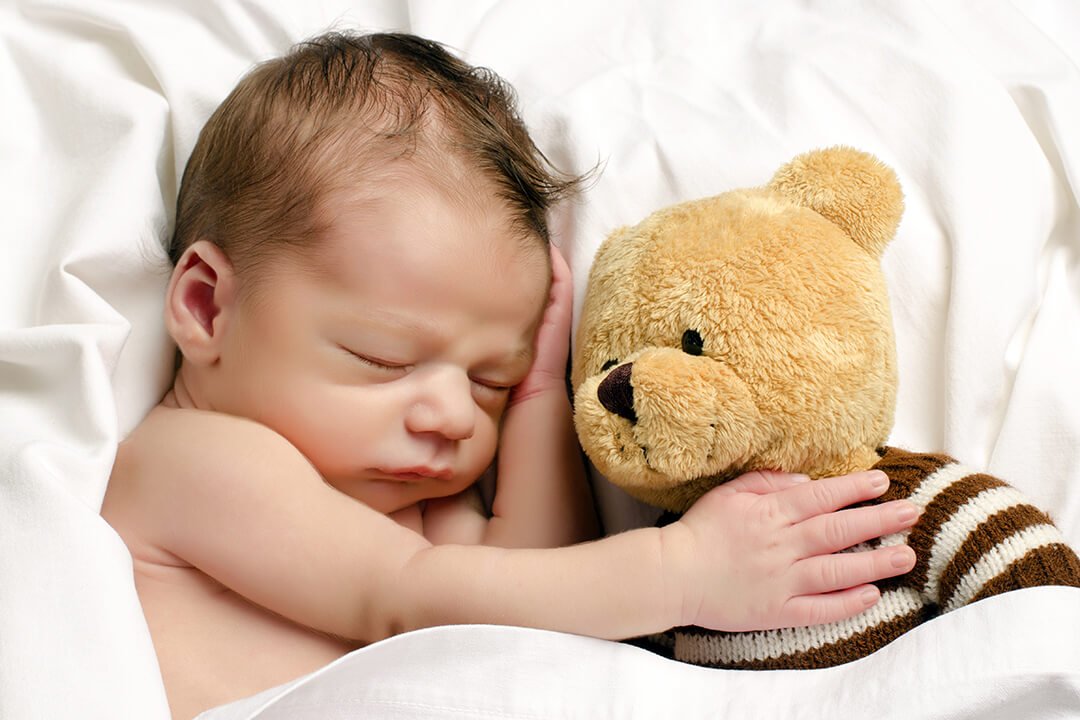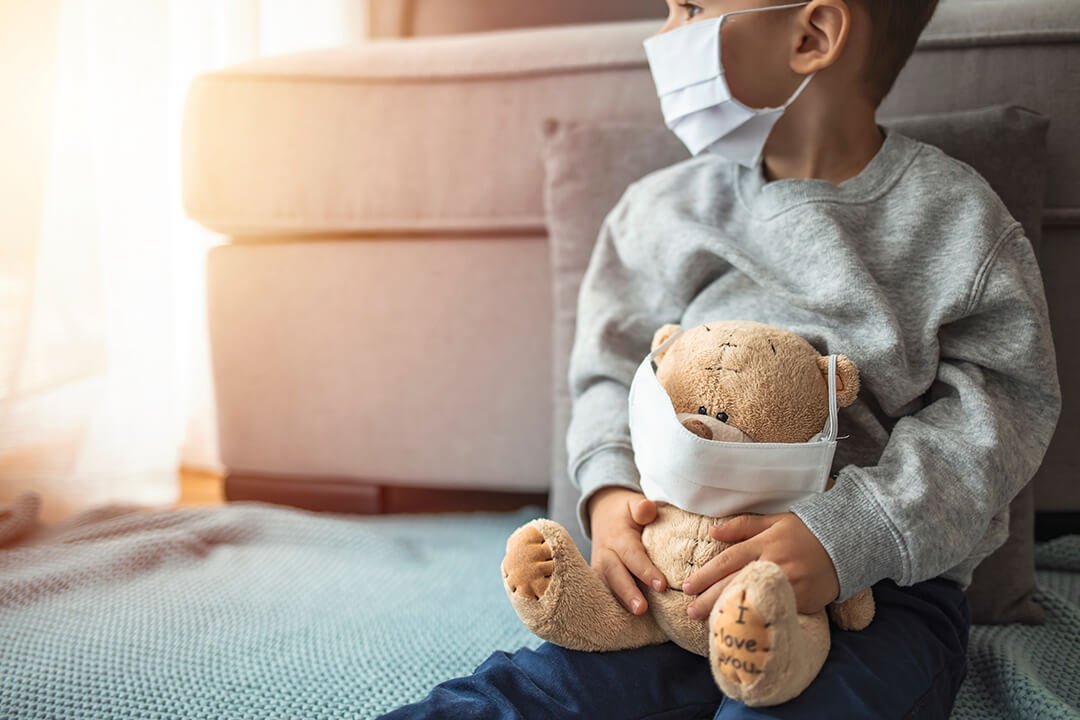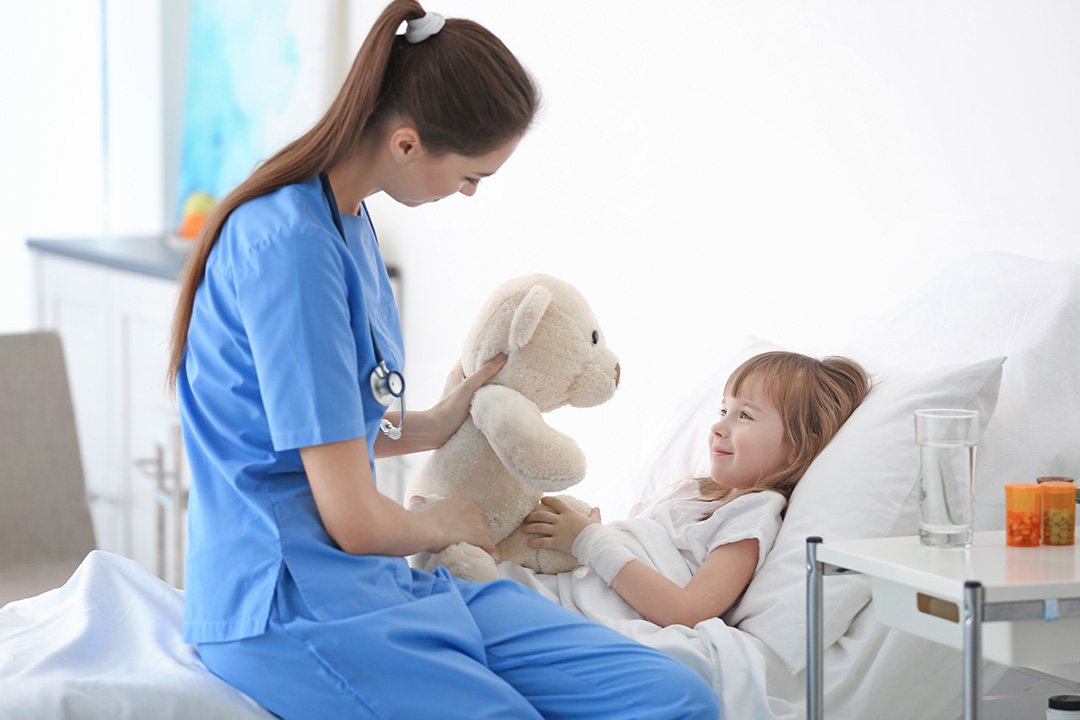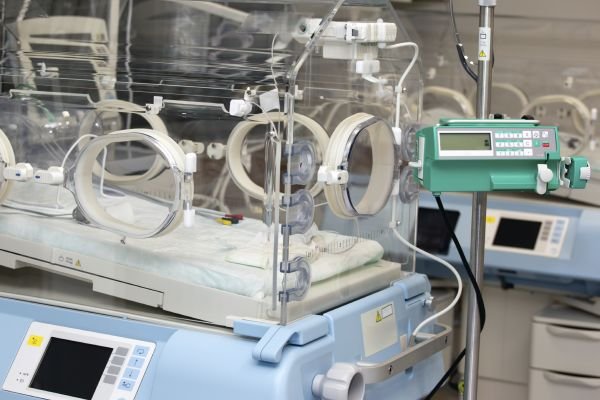Flying with a sick baby: 7 useful tips for a safe flight
Reading Time: 5 minutes
Table of contents
- Is flying long distances with a sick baby safe? (Tips for a safe flight)
- Flying with a sick child: should you postpone your flight?
- When does flying with a sick baby become risky?
- Why are air ambulance planes ideal for baby transport?
- Benefits of our air ambulance for children
- Do you have any additional questions?
- Contact us today!
Traveling with a baby can be difficult, but travelling with a sick baby can be even more challenging. Flying with a tiny human whose natural reaction to discomfort or pain is to scream and cry as loudly as possible is exhausting. While this may be manageable at home or in your car, you may be taken aback in a large cabin full of strangers who all expect you to keep the noise to a minimum. There is also the question: is flying dangerous for your baby?
The key points to remember when flying long distances with a sick baby:
- While flying with a baby who has a common cold, sore throat, pinkeye, vomiting, or diarrhoea is more uncomfortable than harmful to their health, other conditions, such as an ear infection, can cause excruciating pain.
- A sick baby with fever, breathing difficulties, and cardiopulmonary problems should not fly long distances without proper medical assistance. Commercial aircraft are not equipped or staffed to deal with such severe medical issues. Furthermore, the cabin's low humidity and oxygen levels can aggravate a sick baby's symptoms.
- Air ambulances, which resemble flying intensive care units, are outfitted with mobile paediatric incubators to transport babies and infants safely and comfortably while minimising their risk of infection. Experienced and certified paediatricians provide in-flight care to sick children, ensuring consistent and high-quality care.

Is flying long distances with a sick baby safe? (Tips for a safe flight)
Whether you’re a seasoned traveller or it's your first time travelling with your little bundle of joy, you would not want your baby to suffer or experience complications mid-flight. Here are 7 useful tips for travelling with a sick baby:
- Consult your paediatrician
- Travel with medication
- Be extra cautious during take-off and landing
- Hydrate your baby more than ever
- Bring extra clothing
- Travel with your insurance card/Purchase travel insurance
- Contact Medical Repatriation UK if your baby is too sick to fly commercially
Flying with a sick child: should you postpone your flight?
Consider the following before flying with a sick baby:
Your baby's age and health
Air travel is strongly discouraged immediately after birth. Air travel increases their chances of contracting an infectious disease, such as the coronavirus disease. This is especially dangerous for newborns’ still immature immune systems. In general, doctors advise waiting until your baby's immune system has matured before flying. This could be as soon as one month, though most doctors recommend three to six months. If your newborn is sick, don't fly unless their paediatrician says it's safe.
Your baby has an ear infection
Changes in cabin pressure cause temporary changes in middle ear pressure during a flight. The eustachian tube aids in pressure regulation within this system. It cannot do its job properly in infants and young children because it is more horizontal, narrower, less rigid, and shorter. This can cause excruciating ear pain during ascent and descent, especially if your baby has an ear infection or has had ear surgery two weeks before your flight. Another possibility is a ruptured eardrum.
If your child's ear infection is diagnosed and treated at least 48 hours before their flight, they should be fine. If not, you should try to reschedule your flight. If this isn't possible, give your child pain relievers 30-60 minutes before take-off. Call your paediatrician to see if they would benefit from a decongestant nose spray, which may help to drain the fluid behind the eardrum, making the pressure change smoother and more comfortable.
Your baby has a common cold
If you're travelling during the cold season, your baby is likely to have a stuffy nose and possibly a cough. Although nasal congestion may increase pressure behind the eardrum, making ascent and descent more difficult, it should not be as severe as an ear infection. Most of the time, your child will not be any worse, but the experience will be uncomfortable and inconvenient.
Consider using nasal saline spray in the days leading up to your flight to try to rinse out the nose and reduce the chances of ear pressure issues. As with ear infections, you should consult your paediatrician before flying to get their opinion on a decongestant nasal spray.

Your baby has vomiting and diarrhoea
Air travel will not make your baby any worse, but there’s a good chance you’ll regret flying.
If your child is vomiting, we strongly advise you to reschedule your flight. Because of the confined spaces and the urge to vomit, you're unlikely to be able to direct your child to the bathroom when he needs to vomit. If you don't succeed, you and your child will not be the only ones who are unhappy. If your child is not vomiting but has diarrhoea, the decision is based on how "containable" the diarrhoea is. If your toddler's diapers are manageable, you should be able to make it work. The flight, on the other hand, could be a disaster if the diapers fail.
Anti-nausea medications may be useful if your child is actively vomiting. It's not a guarantee, and it's only available with a prescription, so consult your paediatrician to see if this is right for your baby. Unfortunately, if they have diarrhoea, there isn't much you can do. In general, over-the-counter diarrhoea medication is not advised in infants. It is preferable to get it all out rather than keep it in, as the latter can aggravate some infections.
Your baby has a strep throat
Fortunately, strep throat should not be a major problem when flying. Furthermore, your child is no longer contagious if he has been on antibiotics for more than 24 hours. If you started the medication less than 24 hours before your flight, try not to let your child wander the aisle too much.
Your child has pinkeye
Pinkeye is a fairly common childhood infection, and there's no reason to cancel your flight because of it.
Use the prescribed drops or ointment if your doctor has diagnosed bacterial pinkeye. If your baby allows it, apply a compress to the eye (warm for viral, cool for allergic), but this isn't required for flight.
When does flying with a sick baby become risky?
It can be difficult to tell when a baby or toddler is seriously ill. Here is a list of symptoms that your baby or toddler is seriously ill and should not travel:
Temperature
If your baby is under 3 months old and has a fever, call your doctor. If your baby is 3 to 6 months old, appears sick, or has a temperature higher than 38.9 C, call your doctor. In addition to fever, the low humidity level in the cabin can make your child uncomfortable and exacerbate problems (such as dehydration).
Breathing
As altitude and destination altitude rise, oxygen levels in an aircraft cabin fall, putting babies who have difficulty breathing due to or with a pre-existing pulmonary disorder at risk. Warning signs in babies are:
- rapid breathing or panting
- a throaty noise while breathing
- your child is having difficulty breathing and sucking their stomach in under their ribs

Because most commercial flights only have a basic first aid kit on board, patients should bring their own medical kits. This is a significant problem for those who require continuous medical attention, whether on the way to the airport, during the flight, or on the way to the destination hospital. Commercial flights also lack onboard medical personnel who are trained in childcare and are not prepared to intervene in the event of an emergency mid-flight.
Why are air ambulance planes ideal for baby transport?
A rare disease requiring complex care or an accident with serious health consequences – a child may require medical flight transport services from one destination to another for a variety of reasons. However, when a small patient is in a critical condition, inter-hospital transfers via a regular flight can be impossible in most medical flight operations. This is where we step in.
Medical Repatriation UK's paediatric air ambulances can safely transport children from one hospital to another. Our intensive care transport is made up of ground ambulances and ambulance flights, both of which are outfitted with medical equipment similar to that found in a hospital's intensive care unit.
Benefits of our air ambulance for children
Specialized medical equipment for infants: Our ambulance planes are fully equipped to care for our tiniest patients during the flight and to intervene in the event of a medical emergency. The medical devices can be customised to your baby's condition and needs, allowing newborns and premature babies to travel safely. A mobile paediatric transport incubator, for example, can be designed so that they never have to leave the incubator.

We are a team of specialists: At least one doctor and one nurse, both of whom are paediatric intensive care specialists, will be responsible for your child's care. Our team is constantly trained and has years of clinical experience at prestigious hospitals. We add additional medical specialists in the respective field when the effects of reduced atmospheric pressure or other challenges for patient transport by aircraft, such as paediatric cardiology, require it.
Less chance of infections: There is less chance of germ transmission and infection because the parents and child will be the only people onboard the air ambulance, aside from the medical crew. You will also not have to worry about standing in lines or being surrounded by people during the onboarding process.
A less stressful experience: Traveling by air ambulance eliminates the hassles of delays, flight cancellations, and transits. We can even contact the healthcare facility at your destination and arrange for ground transportation to transport your child there upon landing.
Do you have any additional questions?
Many of the most frequently asked questions about long-distance patient transfer to the UK are addressed in our FAQ.
Contact us today!
Do you need a peadiatric medical flight at short notice? We can fly your child around the world in short, medium, and long-haul flights. If, instead of our medical flight transport service, a medical escort aboard an airline is also an option in your case, we would of course notify you of this option.
Please contact our 24-hour service at any time if you require additional information or a free non-binding quote by:
- Telephone: +44 (0) 20 3608 0483
- Email: info@medical-repatriation.uk
- Our contact form